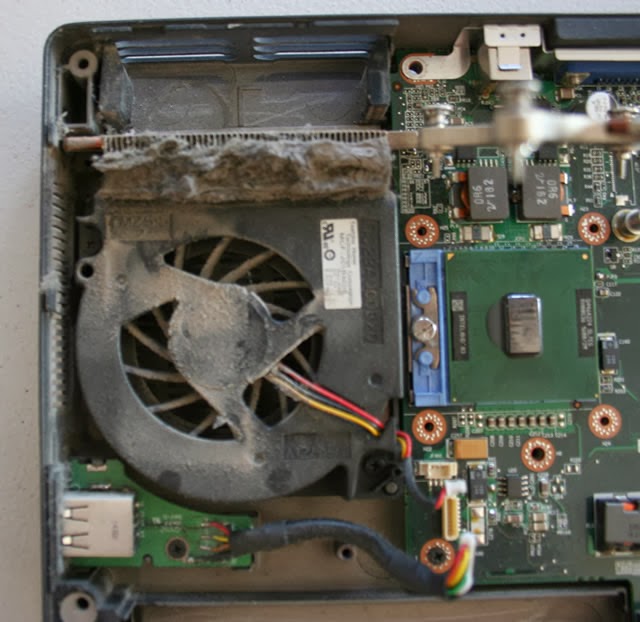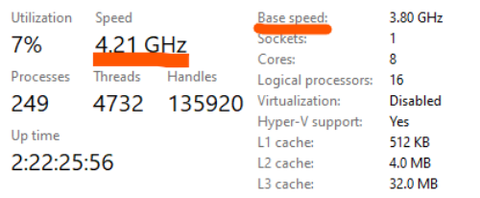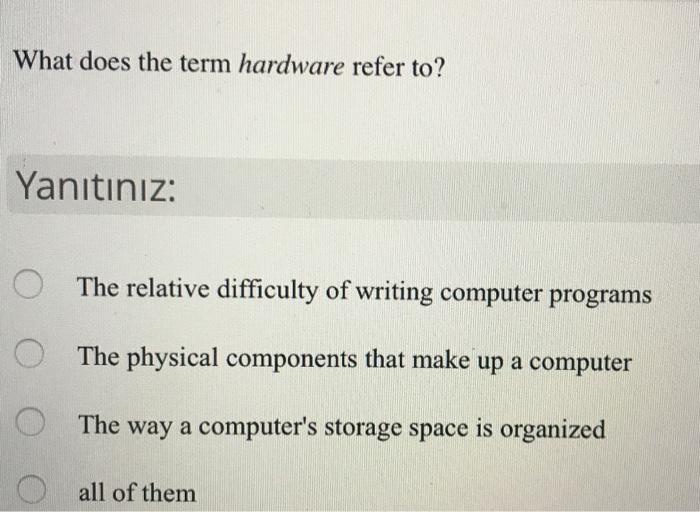The Unraveling Speed: What is the Fastest Laptop Cpu?
Introduction
If you're in the market for a new laptop, you'd probably want the best gaming device, a workstation for multitasking or something that can handle intensive tasks efficiently. The laptop's speed is a crucial determinant of its performance and this largely depends on the CPU. But do you understand how these laptops' CPUs function or how to determine the speed? More importantly, with the sea of options in the market, how can we establish what is the fastest laptop CPU? In this article, we'll untangle the complexities of laptop CPUs and give you the knowledge you need to make an informed choice.
What is a Laptop CPU?
The Central Processing Unit (CPU), often referred to as the "brain" of a computer, orchestrates a laptop's main operations. Here's a simplified breakdown:
- Functionality: A laptop's CPU executes the instructions of a computer program. It does this by managing the basic mathematical, logical, control and input/output operations, ensuring the fluidity of the functioning system.
- Interactions with Hardware: The CPU doesn't work alone. It communicates with the memory and other components to process data, which keeps your laptop performing smoothly.
- Significance: A solid comprehension of a CPU's role and workings can empower smarter, more tailored laptop purchase decisions. It can also influence the laptop's speed, performance, and efficiency, integral aspects that ultimately impact user experience.
Without the CPU, a laptop would be void of its essential functional capabilities. Comprehending its significance underscores its critical role in the sphere of computing.
Decoding CPU Speed: What Factors are Involved?
When it comes to understanding a CPU's speed, or its so-called 'clock rate', various factors come into play. This rate is typically recorded in Gigahertz (GHz) and is influenced by the following elements:
- Number of Transistors: More transistors can process data faster, though the physical size limits their number.
- Cores and Threads: More cores and threads can perform more operations simultaneously, enhancing the CPU's ability to multitask swiftly.
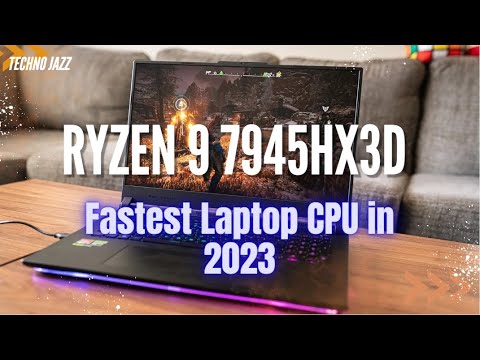
- Cache Memory: Higher cache storage can host frequently accessed data, which speeds up data retrieval and reduces wait time for the processor.
- CPU Architecture: Often shown as 14nm or 7nm, this characteristic impacts speed and power usage. The smaller the number, the newer the architecture, leading to better performance and less power consumption.
- Power and Heat Management: CPUs must manage heat and power usage to avoid overheating or shortening battery life. These strategies can sometimes limit high speed performance.
Remember, a fast CPU will likely handle complex tasks more efficiently. However, each factor should be considered to gain a comprehensive understanding of a CPU's speed and potential performance.
Identify and Compare: What are the Fastest Laptop CPUs in the Market?
If you're currently on the lookout for a new laptop and speed is at the top of your priority list, knowing today's fastest laptop CPUs is an essential part of your search. Scoring high in terms of performance and power, two key players dominate this field, Intel and AMD.
- Intel's 11th Gen Processors: These CPUs are the epitome of speed and efficiency. They come in different models, but the front runners in this generation are the Core i7 and Core i9.
- *Key Selling Points*:
- Speedy computing efficiency
- Strong multitasking capability
- High-end gaming performance
- Power-efficient
- AMD's Ryzen 9 5900HX Processor: The Ryzen 9 is AMD's flagship processor, rivalling the performance of Intel's models.
- *Key Selling Points*:
- Fast processing speed
- Superior multitasking features
- Exceptional gaming experience
- Efficient power consumption
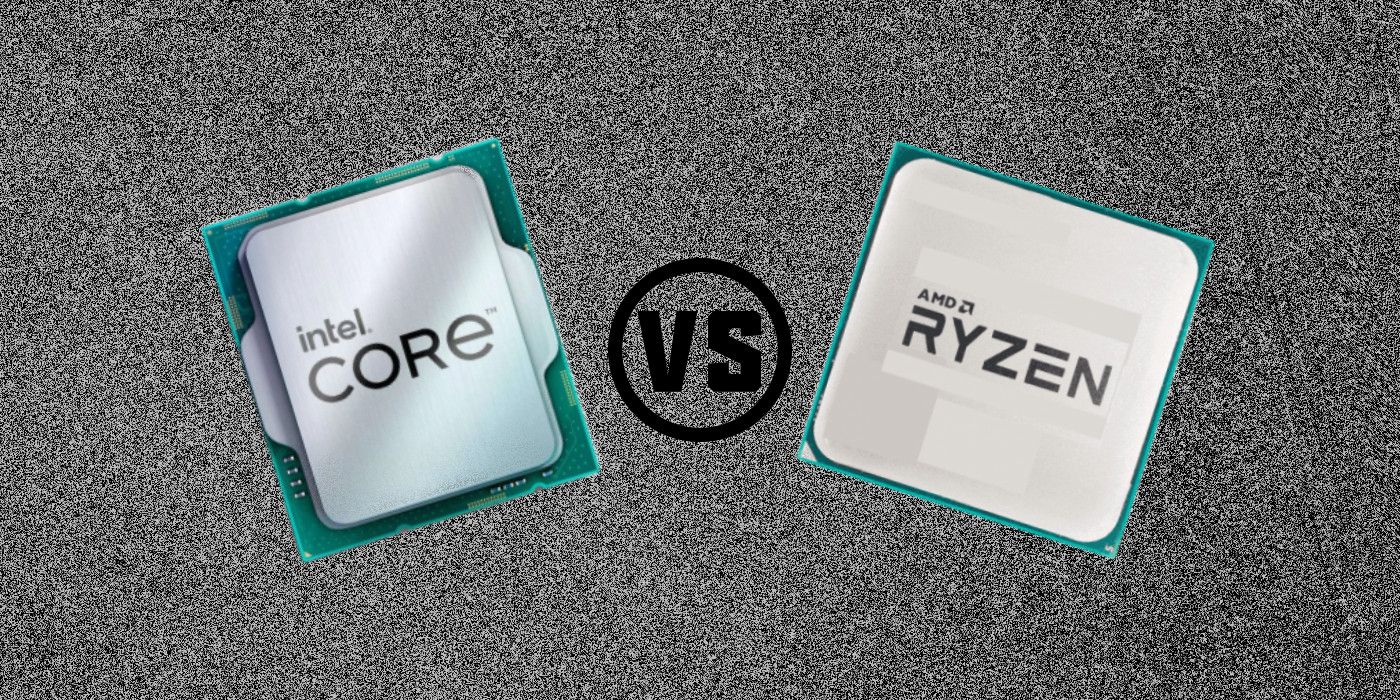
It's worth noting that the stated speed of these CPUs isn't the only contributing factor to consider. Laptop design and cooling solutions can significantly impact the actual speed and performance of these CPUs. Furthermore, your specific software requirements will also determine how well these CPUs perform in practical use.
Hence, while evaluating the fastest laptops CPU’s in the market, it's crucial to factor in your specific requirements, the various pros and cons of each CPU, and weigh this information against your budget and performance expectations.
Below, we have listed a quick comparison based on the number of cores, threads, max boost clock, cache, and TDP, the key components directly affecting the CPU speed.
| | Intel Core i7-1165G7 | Intel Core i9-11900KB | AMD Ryzen 9 5900HX |
|--|-------------------|------------------|-----------------|
| Core | 4 | 8 | 8 |
| Threads | 8 | 16 | 16 |
| Max Boost Clock | 4.7 GHz | 4.9 GHz | 4.6 GHz |
| Cache | 12 MB Intel Smart Cache | 16 MB Intel Smart Cache | 16 MB L3 cache |
| TDP | 12-28W | 45-65W | 35-54W |
Remember that the figures above are only a snapshot of the capabilities of these high-performance CPUs and that actual speed and efficiency will be influenced by multiple factors, including your laptop’s specific configuration and your manner of usage.
How Does a Fast CPU Impact Your Laptop Performance?
The Central Processing Unit (CPU) is essentially the heartbeat of your laptop, dictating how swiftly it executes various tasks. When you opt for a laptop with a fast CPU, you augment your device's capability to process and execute commands more rapidly, resulting in an array of benefits:
- Enhanced Productivity: A faster CPU can process more instructions per cycle, improving the overall laptop's productivity. You can run numerous applications simultaneously and experience fewer delays in response, making you more efficient.
- Superior Responsiveness: Laptops with high-speed CPUs are more responsive to commands, whether you're launching an application, loading a video, or opening a large spreadsheet.
- Arduous Tasks: Power-intensive tasks such as video encoding, 3D rendering, or running sophisticated software become a breeze with a fast CPU.
- Gaming Experience: Today's high-end video games demand a lot from your laptop. A fast CPU enhances these gaming experiences, providing smooth, hiccup-free performance and helps to render graphics quickly.
- Multitasking: With multiple cores, a rapid CPU can execute several operations at once without any hiccups, making multitasking seamless.
It's important to note, however, that the benefits of a faster CPU will be most palpable when running complex, power-hungry software and for heavy multitasking. Everyday tasks like browsing or word processing may not show significant improvements with a high-speed CPU.
Remember, a fast CPU may influence the battery life, heat generation, and the laptop's price. Balancing these factors with your performance requirements will yield a fruitful laptop experience.
Is the Fastest CPU the Best Choice for You? Factors to Consider
While you might aspire to have the fastest CPU in your laptop, this might not necessarily be your ideal choice. Here's an in-depth look at several factors you should take into consideration:
1. Specific Usage Needs: The kind of tasks you perform can greatly influence your CPU choice. For instance, high-speed CPUs are most advantageous if you are running demanding applications.
- *Web-Browsing or Document Editing*: A mid-range CPU should be sufficient for these basic tasks.
- *High-End Gaming and Video Editing*: These intensive tasks demand a faster, more robust CPU.
2. Budget Constraints: High-speed CPUs, while offering superior performance, are often more expensive. It essential to balance your monetary budget with the performance you desire.
3. Eliminating Overkill: Paying for the fastest CPU but only using the laptop for lightweight tasks wouldn’t be optimum utilization of resources. Choose a CPU that fits the scale of tasks you carry out.
4. Power Consumption and Battery Life: High-speed CPUs often consume more power and drain the battery faster. If portability and long battery life are important to you, this could be a significant consideration.
5. Heat Output: Faster CPUs may produce more heat, which can cause discomfort and might even damage the laptop without proper cooling. Therefore, your laptop’s cooling system capabilities should align with the CPU speed.
So, if you're not running complex, resource-heavy software, or rendering graphics, a top-of-the-line fastest CPU could be an overkill. Instead, considering these factors would help you strike a balance between performance, cost-effectiveness, power consumption, and heat management.
A final piece of advice would be to read user reviews and perform thorough comparison shopping before making your final decision. Understanding and considering the above factors can help you navigate the abundance of CPU options, ultimately leading to the most effective choice that satisfies your requirements and fits your budget.
Conclusion
Evaluating the fastest laptop CPU involves an understanding of CPU mechanics, market options, and your individual requirements. While a fast CPU can significantly boost laptop performance, aligning the CPU capabilities with your usage needs and budget is equally vital. This approach will ensure optimal processing power and cost-effectiveness.
Related FAQs about what is the fastest laptop cpu
How does CPU speed affect the overall laptop performance?
CPU speed, often referred to as its 'clock rate', dictates how many instructions the CPU can process per second. A faster CPU may mean faster execution of tasks and less lag time when running resource-heavy applications or when multitasking.
What is the difference between a laptop CPU and a desktop CPU?
In general, laptop CPUs are designed with power efficiency and heat management in mind and thus may operate at lower speeds compared to desktop CPUs. On the other hand, desktop CPUs, without the constraint of size or battery consumption concerns, often deliver higher performance.
Is it necessary to always choose the laptop with the fastest CPU?
No, choosing a laptop with the fastest CPU is not necessary for everyone. It largely depends on the user's requirements. If your work involves simple tasks like browsing and document editing, a mid-range CPU should suffice. High-speed CPUs are better suited for intensive tasks like high-end gaming and video editing.


